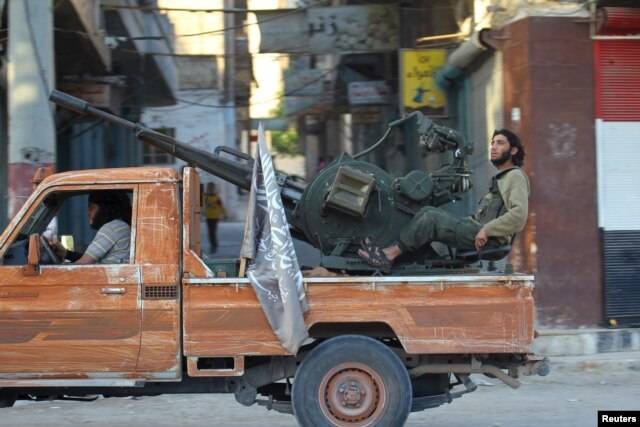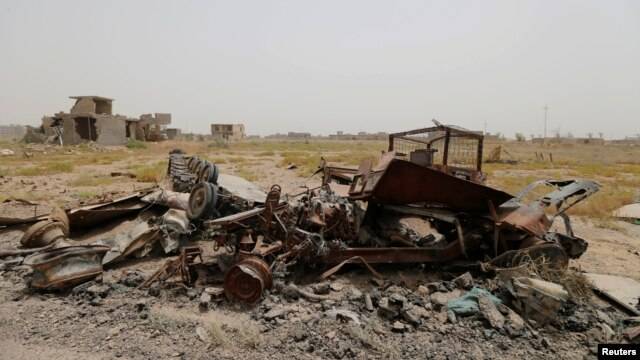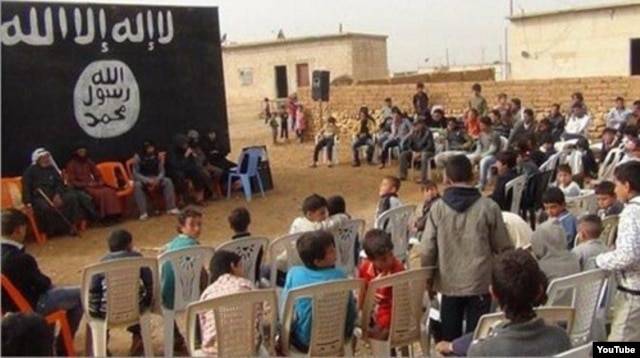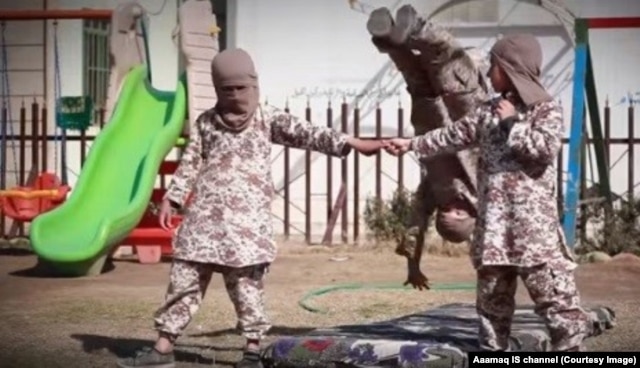This grim outlook, according to military and intelligence officials, stems from several factors, from poor governance and pervasive instability to the alienation of certain segments of populations. Combined, they say, these factors have undone long-standing cultural bonds and allegiances, turning parts of the Middle East and Africa into terrorist incubators. “More and more individuals, because of their feeling of being disenfranchised from their governments, are now identifying with subnational groups, whether it be with an ISIL, a Nusra, a Boko Haram or others,” CIA Director John Brennan warned lawmakers last week. “They’re not identifying themselves as Somalis, Nigerians or Yemenis.”
Members of al Qaeda's Nusra Front ride on a pick-up truck mounted with an anti-aircraft weapon in the town of the northwestern city of Ariha, after a coalition of insurgent groups seized the area in Idlib province
Complicating matters further is the feeling that military power alone, no matter how overwhelming, is not enough to deliver a decisive blow against IS or any other deep-rooted terror organization. “It’s not as though we’re looking at a happy ending in Iraq and Syria,” said Daveed Gartenstein-Ross, a senior fellow at the Foundation for Defense of Democracies. “Defeating ISIL does not defeat jihadism.” “Momentum is in favor of the global jihadist movement,” he said.
Al-Qaida retrenches
In some ways, the rapid ascension of IS and its bid to become the preeminent global jihadist organization have actually strengthened its competitors, most notably, al-Qaida. “Al-Qaida has prioritized [Jabhat al] Nusra as an affiliate,” a U.S. intelligence official told VOA on condition of anonymity. The official noted that the group has used the last two years to “retrench and rebrand,” emerging with greater strength on the battlefield in Syria and with more credibility, as well. Intelligence officials estimate Jabhat al Nusra currently has several thousand fighters at its disposal, rating the group’s capabilities as “formidable.”
Military vehicle wreckage belonging to Islamic State militants is seen in Falluja, Iraq
And even though Jabhat al Nusra’s parent organization has suffered setbacks in Afghanistan, a one-time safe haven, analysts like Daveed Gartenstein-Ross warn it is a mistake to underestimate al-Qaida’s resources or reach. “People overstate the way al-Qaida is kind of a virtual entity – it’s not. They control territory, and people aren’t complaining about it,” Gartenstein-Ross said. “They’ve embedded with local populations in Yemen and in Syria and Libya and in Mali.” Thanks to its rebranding efforts, al-Qaida’s appeal even seems to be expanding. “Al-Qaida has managed to capture the echelon of Salafi jihadis who were repulsed by ISIS’ brutality but still have the ideology and want something that is just a half-step down,” said Jessica McFate, a former U.S. Army intelligence officer now with the Institute for the Study of War.
IS Demise boost for al Qaida




